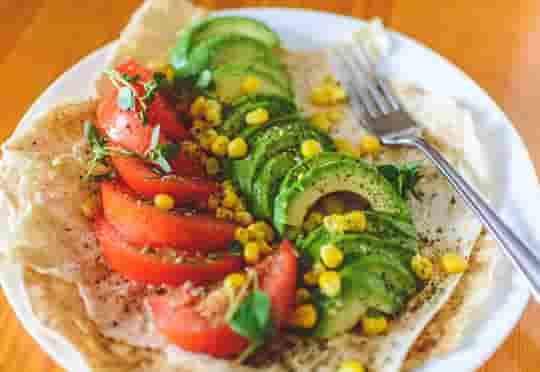An effective diet for losing weight as well as reducing the risk of heart disease.
The Eco-Atkins diet — a low-carb vegan diet — is not only an efficient weight loss plan but is also able to reduce heart disease risk by 10 percent.
Past studies have shown that diets low in carbohydrates and high in animal proteins and fats can improve weight loss.
But a study suggests that a vegan low-carbohydrate regimen known as the Eco-Atkins diet can be even more effective than other types of diets.
A group of obese adult were asked to follow either a high-carbohydrate lacto-ovo vegetarian diet (high-carbohydrate, low-fat diet) or a low-carbohydrate vegan diet (Eco-Atkins) for 6 months.
The Eco-Atkins diet is based on vegetable products containing gluten, nuts and soya which are high in protein or fat.
Besides weight loss, the Eco-Atkins diet had the advantage over the high-carbohydrate, low-fat weight loss diet since it decreased the risk factors for heart disease, including low-density lipoprotein (LDL) cholesterol.
Professor David Jenkins, the study’s lead author, said:
“We killed two birds with one stone — or, rather, with one diet.
We designed a diet that combined both vegan and low-carb elements to get the weight loss and cholesterol-lowering benefits of both.”
Participants on the Eco-Atkins diet lost 6.9 kg while the rate for the high-carbohydrate, low-fat diet group was 5.8 kg.
In addition to their extra weight loss, their cholesterol was 10 percent lower and they had a 13 percent drop in LDL or “bad” cholesterol.
Dr Jenkins said:
“We could expect similar results in the real world because study participants selected their own diets and were able to adjust to their needs and preferences.”
In order to continue the weight reduction, participants consumed only 60 percent of their estimated calorie requirements per day.
The Eco-Atkins calorie intake consisted of 43 per cent fat, 31 percent vegetable proteins, and 26 percent carbohydrates.
Fat sources were vegetable oils, soy products, avocado, and nuts including cashews, almonds, macadamia, hazelnuts, pistachios, and pecans.
Protein sources came from foods such as veggie burgers, vegan deli slices, veggie bacon, tofu, soy milk, cereals, wheat gluten, nuts, fruits, and vegetables.
Carbohydrates intake was from low-starch vegetables like eggplant (aubergine) and okra and high-fibre foods like barley and oats.
The study was published in British Medical Journal Open (Jenkins et al., 2014).

